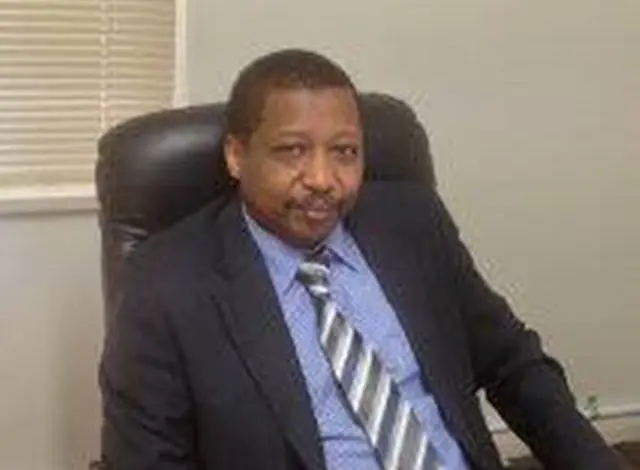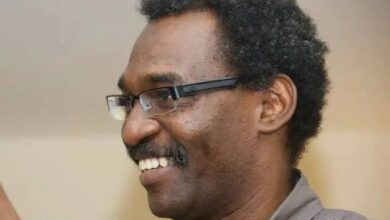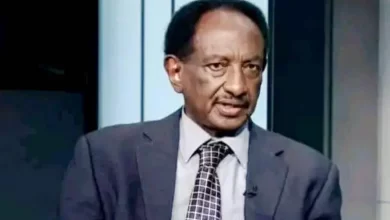The Nairobi Declaration: Is the controversy of Secularism
the crisis or solution??

Salah Jalal writes… The Nairobi Declaration: Is the controversy of Secularism the crisis or solution??
(1)
The debate concerning secularism and the State in Sudan has grown rather pointless, merely a political slogan without any philosophical content that must be confronted decisively in favor of a State of equal citizenship without discrimination in religion, race, or color, where the State remains unbiased towards any specific religion and beliefs. These secular connotations are the basis for the modern civil State.
We have previously settled this matter and discussed it at length at the historic Asmara Conference on crucial issues in 1995, where I was honored to participate, as well as the Nairobi Declaration document to codify the relationship between religion and the State in April 1993. The national parties do not need to rediscover the wheel again, as they jointly participated in resolving this controversy with the National Umma Party, the Popular Movement, the Democratic Unionist Party, the Communist Party and others, along with nationalist figures for they are charters that represent the majority of the national diversity in the country.
We needn’t to retract those documents and return to the gray area after that clarity, achievement, and breaking of the taboo a quarter of a century ago, so that we can return once again to the futile debate of Islam and secularism that has sapped the energy of the political movement since the Declaration of Independence in this country until today.
(2)
The State isn’t a person to either believe or disbelieve. It is an instrumental administration for organizing interests, managing wealth, and levels of authority. In many constitutions, there is no mention of identity in the State, as was the case in the 1973 constitution in Sudan. Islam, Christianity, and noble beliefs were mentioned as a comprehensive formula for the sources of knowledge and the morals of the people.
Currently the constitutional jurisprudence has come to speak about a functional State formula that is based on people’s basic needs for security, education, housing, and economic management in favor of providing food and medicine to citizens, as is the case now in the State of Türkiye, which is based on an unbiased secular constitution towards any religion. This is also the case in the Egyptian Constitution, we mustn’t place religion as a factor dividing citizens, but rather as a factor of unity and coexistence that unites, not divides, and preserves, not disperses.
(3)
The controversy over Islam and secularism, in its current intense form, was introduced to the public as a slogan for political mobilization in the face of leftist forces competing with them in the school and university arenas, and a significant part of their assigned tasks with International Intelligence Services on the subject of war against communism during the Cold War.
They are currently exploiting religion as a political slogan and secularism as a scarecrow with which they blackmail groups with a religious background such as the Ansar, Khatmiyyah, and general Sufi Order. They seek to arouse the emotions of their members and agitate them by claiming that secularism means [immorality, drinking alcohol, prostitution and homosexuality]. Thus, they call for revolution against it, and they have ruled the country for thirty years during which not even one of limits regarding known matters of Sharia law was applied.
Using this particular intimidation tactic, the leaders of the Ansar, Khatmiyyah, and Sufis hesitate to confront this challenge, which has crippled public life in the country since its independence. The Islamic and secular debate in the country has become a taboo that should not be approached, making it a tool for national division and fragmentation and an active aspect of the severe political polarization that has deprived the country of national unity and stability.
(4)
The Nairobi Declaration, which was signed by Dr. Abdullah Hamdok in his capacity as President of the Coordination-body of the Democratic and Civil Forces “TAGADOM” or as a former Prime Minister, regarding the clause of the relationship between religion and the State, Islam and secularism, by siding with the latter, which is the correct choice for establishing a civil State that remains neutral towards all religions and beliefs.
With such decisiveness, we announce the end of the marathon that has been going on since the Independence until today, opening the door to the establishment of a State of equal citizenship and a functional State that is preoccupied with confronting hunger, poverty and diseases, the basic issues that faces the good citizen who populates the earth with his knowledge and relationship with his Creator according to his beliefs and perceptions. As for religion as a culture in society, it will continue to govern people’s relations in inheritance, worship, family laws, and a moral fence that will cast its shadow in all legal life as a dominant culture for the majority in Sudan.
(5)
In Conclusion
Dr. Abdullah Hamdok isn’t a man from the old political club, for he isn’t shackled by the quackery, superstition, and the politicization of the religion-State debate. This is one of the paralyzing reasons for public life in the country, which has caused instability and unity.
The accursed April war must spark a new awareness and discourse to confront all that has been kept silent. The Nairobi Declaration opened a window of light that we bless and support as basis for achieving comprehensive peace and a complete democratic transformation to clear the way for fluency, progress, and an attack on the rest of the agenda that has been postponed since independence, to build the second republic, as was kindly suggested by Dr. Suliman Sandal, head of the Justice and Equality Movement.





